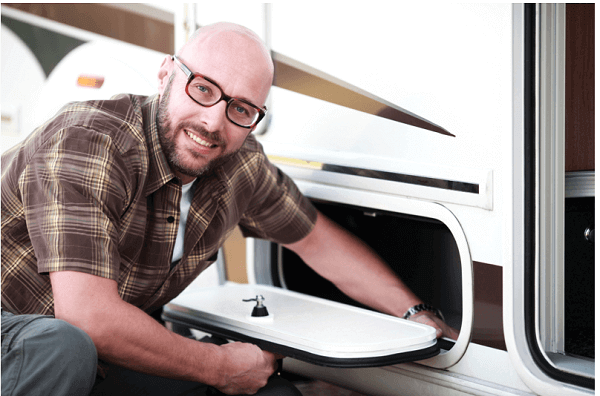11.2 million households own an RV or recreational vehicle. That number rose 62% from 2001-2021.
They can save you money on vacations, but repairing them isn’t always cheap. 6% of drivers spent $20,000-$30,000, but 60% spent $5,000 or less.
Read on to learn how often to service each part of your RV.
Yearly Service
There are at least two RV parts that need constant attention and annual service. These are the brakes and the propane system.
Check your RV’s seals. Reseal the exterior every year to prevent leaks.
Monthly Service
Regular driving is part of RV maintenance. Take it out to prevent damage to the axles and engine. Run your generator on at least 50% load.
Check the battery’s water level. Clean the vents and intake and replace the air conditioner filter.
Open the hood to check for leaks, loose hoses or bolts, and issues with the suspension or axles.
Check the rail and cross-members in the chassis. Get professional Leisureland RV parts and service if you notice any rust or fractures.
Test and clean your safety equipment. This includes:
- Smoke detectors
- Carbon monoxide detectors
- Fire extinguishers
Seasonal Service
Every RV owner should weigh their vehicle to prevent them from driving while overweight. Do it at least twice a year or after adding heavy cargo.
Change the oil at least every 3,000 miles. Look at the other fluids and filters while you’re at it.
Deep clean the interior and exterior. Remove old food, clean spills, and use wax to protect against:
- Tar
- Salt
- UV rays
- Bird droppings
- Bugs
Inspect the seals and seams of your roof for water damage. Clean off any debris and apply sealant.
Rubber roofs are different. They should be treated at least once a year for sun damage and inspected at least twice a year.
Checks Before Every Trip
Check the tire pressure. Look for any signs of damage such as bubbling or cracks.
Test the brakes and the brake and headlights. Look at the date on your propane tank to make sure it’s not expired.
Look for leaks on the fittings or regulators. Spray soapy water on it and see if it creates bubbling water.
Check the trailer hitch before you hook your recreational vehicle up. Look for cracked, worn welds, or loose nuts or bolts. Lubricate the slides so they pull in and out smoothly.
Look at the batteries and replace them if needed. Check any forms of power your RV uses.
Fill cracks or holes in the windows, doors, or awnings to block out bugs and water. Use compressed air to clean debris in the water heater.
Before or After Storage
1.5% of RV owners live in their vehicles full-time. The rest take it out for an average of 20 days a year.
Perform essential RV service tasks before putting it away. Clean the awning and seal up holes to prevent water damage.
Flush out the freshwater tank when bringing your RV out of storage. Flush it with a bleach and water solution until you can’t smell the bleach.
More on Your Recreational Vehicle
Maintaining your recreational vehicle reduces repair bills and increases its lifespan.
Service the brakes, propane tank, and seals every year. Drive it and check its parts every month. Weight and clean it at least every two months.
Check all the essential parts before going on a trip. Service the awning and freshwater tank clean when you put it in storage.
Your owner’s manual is the best RV guide to know when to get it serviced. Read the rest of our content for more information.

Leave A Comment